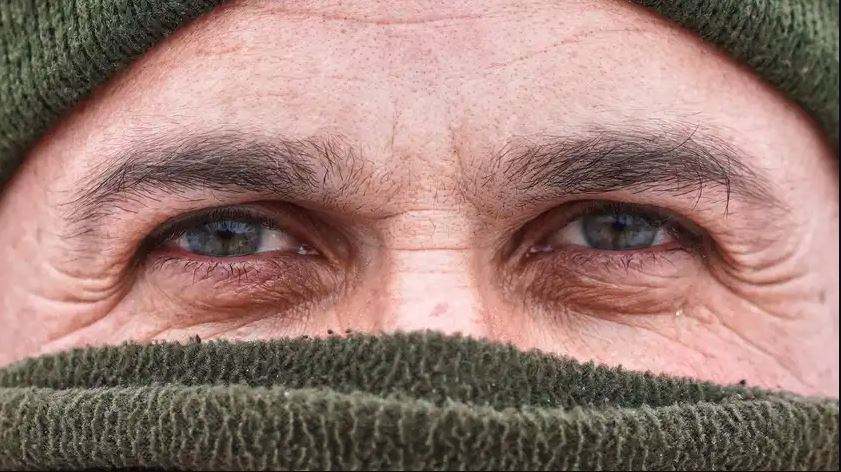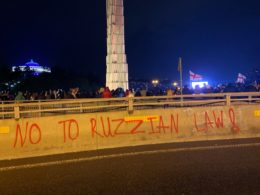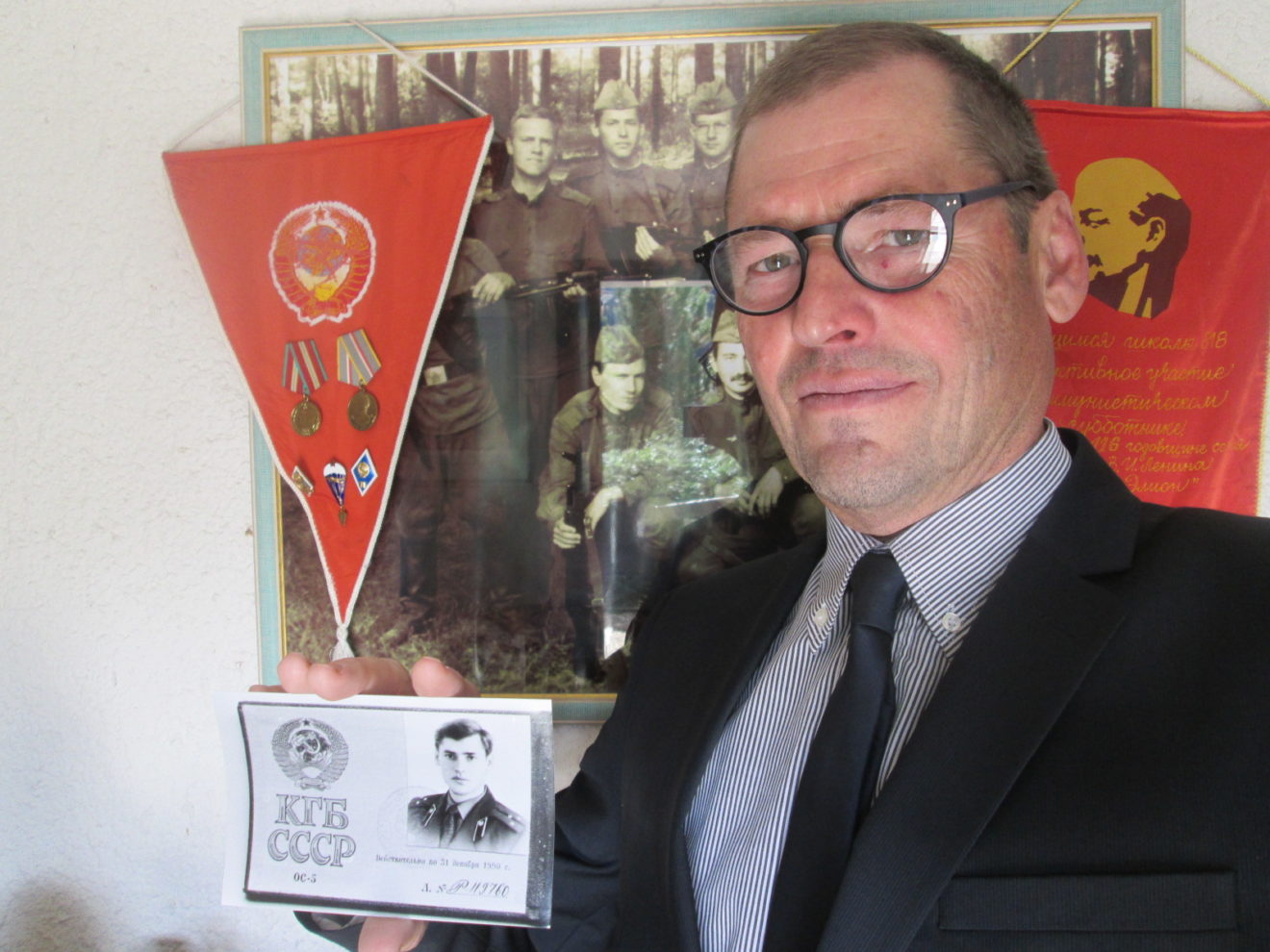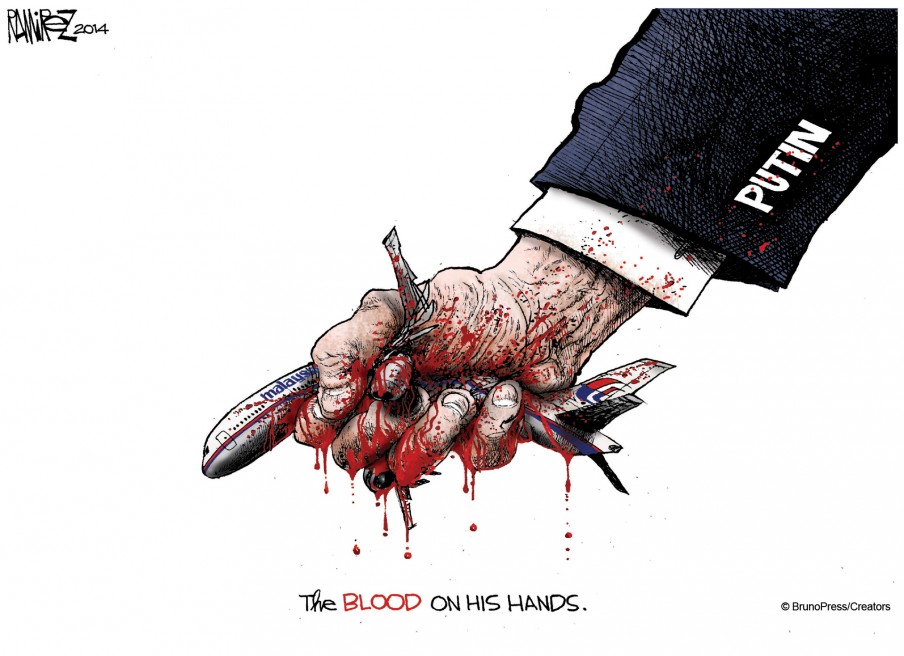A recent article from Newsweek starts with the heading "Ukrainians say no to peace…” The headline or message is, unfortunately not unique. While the article is recommendable, the headline is outright outrageous.
Ukraine, the victim of an unprovoked, unjustified, and ruthless war, desperately wants peace.
The humanitarian costs are massive. While OHCHR has recorded “only” 27,149 civilian casualties so far, information indicates that as many as 150-200,000 might have been killed. The international community lacks information about the situation in occupied cities and settlements. It acknowledges, however, the massive destructions across Ukraine, the Russian indiscriminate attacks, its crimes against humanity, and its process of cleansing the areas of pro-Ukrainian individuals. There are great concerns for example, for Mariupol (Donetsk region), Lysychansk, Popasna, and Sievierodonetsk (Luhansk region), where there are allegations of numerous civilian casualties. The city of Mariupol alone is believed to have suffered 100,000 – 113,000 killed.
There are more than 6.2 million refugees and 5.1 million internally displaced persons. Approximately 17.6 million people – a staggering 49% of the current population – now need humanitarian assistance and protection. Additionally, more than 4 million have been forcibly displaced to Russia. Ukraine’s demography has undergone dramatic changes due to Russian aggression.
Ukrainian cities and settlements are subject to massive and methodical destruction by Russia. The total amount of direct damage to Ukraine’s infrastructure caused due to the war as of June 2023 exceeded $150 billion. 167,200 residential buildings have been destroyed or damaged. Ukraine’s industrial base is being destroyed. With 174,000 square kilometres of territory mined, it has become the most mined country in the world.
A joint assessment from March 2023 by the Government of Ukraine, the World Bank Group, the European Commission, and the United Nations, estimated that the cost of reconstruction and recovery in Ukraine to US $411 billion. Six months later, the estimate has increased.
Ukraine has also lost access to the sea and its maritime resources in its Maritime Exclusive Economic Zone. The maritime cluster – and therefore the Ukrainian economy - is greatly suffering from the Russian maritime blockade and its continuous attacks on its ports and infrastructure. Since 18 July, 105 port infrastructure facilities have been damaged and partially destroyed. Consequently, grain exports to Asia, Africa and Europe have been reduced by almost 3 million tonnes per month.
Ukraine, being exposed to genocide, crimes against humanity, ecocide, and massive destruction, desperately wants peace.
But not at any cost. Ukraine is, after all, fighting for its right to exist. It is fighting a war it never asked for but which it has no choice but to continue until Russia is defeated.
Claiming that Ukrainians say no to peace – and suggesting that Ukraine should make territorial concessions and enter into negotiations with Russia – is principally no different than claiming that the Allies said no to peace when fighting Nazi Germany doing WW2.
Alledging that Ukrainians say no to peace plays perfectly into the Russian disinformation narrative that Ukraine is thwarting peace.
“For there to be any chance of talks, said Putin, Ukraine would first have to cancel its self-imposed legal ban on peace talks and explain what it wanted. Then we shall see, Putin said.”
Only four days ago, Foreign Minister, Sergey Lavrov, portraying the aggressor as the victim, claiming that:
"President Putin has recently said that we do not mind negotiations however any such negotiations need to consider the realities on the ground and take into account the reasons that have been accumulating for decades upon decades due to NATO's aggressive policy...Right now the Ukrainian officials are threatening to physically destroy Russians...".
It presents itself as open to negotiations as soon as Ukraine stops trying to liberate occupied territories and accepts Crimea, Kherson, Zaporizhzhia, Donetsk and Luhansk Oblasts (including the parts that remain under Ukrainian control) as a part of the Russian Federation.
Russia has since 2014 also falsely claimed that neither the US, the EU nor the collective West wants the war to end, while escalating its efforts to defeat Ukraine.
Ukraine desperately wants peace. It wants, however, a lasting and just peace. Not a temporary peace at any cost.
The sad fact is that the war ends the moment Russia decides to withdraw its forces and stop its war of aggression.
The reason Russia chose to start and uphold its war of aggression – why Russia is not seeking peace - goes to the core problem: It is not a “Russia-Ukraine War” but a broader confrontation between Russia and the West.
Russia cannot stop its war of aggression. It is in its imperialistic nature to seek expansion at the cost of its neighbours. Control over Ukraine is crucial to its Great Power ambitions. Having prepared for the assault for 15 years – having shaped both the physical and cognitive battlefield – and launched the war, Russia has ended up in a “now-or-never” situation. Its cards have been played. If it stops, its Great Power ambitions are forever lost. It will remain a pariah state and a minor partner of China. Its regime will not survive anything but a victory.
Russia has said as much themselves. It’s reflected in its history. It is manifested in President Putin’s article ”On the Historical Unity of Russians and Ukrainians“ from July 2021. It is stated in articles like “Where has chaos gone? Unpacking instability” by the former advisor of President Putin, Vladislav Surkov, published only three months before the full-scale invasion of Ukraine. It is echoed in Russia’s “ultimatums” to NATO and the US on 17 December 2021.
Everything Russia has written, stated, or done since 2007 is linked to NATO.
The Alliance has long been presented as an existential threat to Russia. It has falsely claimed that NATO is expanding eastwards while in reality, Eastern Europe has collectively sought protection in the Alliance in fear of Russian westward expansion (as demonstrated in Ukraine since 2014). Ukraine’s westward trajectory – starting with the EU association agreement – triggered the war in 2014. Its continued alignment with NATO (because of Russia’s war) triggered the full-scale invasion on 24 February last year. It has even the impudence to claim a sphere of interest over parts of the Alliance territory, demanding NATO to withdraw and change its force posture accordingly.
In July, Colonel-General Andrey Mordvichev, who has been commanding the Central Military District and Russian Central Grouping of Forces in Ukraine, indicated that Russia might have plans to expand the war in Ukraine to Eastern Europe. When asked about how long the war in Ukraine will last, Mordvichev responded that he has an understanding that Russia has to attack Eastern Europe. “If we’re talking about Eastern Europe, which we’ll have to attack, it will be longer and longer,” Mordvichev said. When asked if Ukraine is “only an intermediate stage,” Mordvichev replied that Ukraine is just a steppingstone to other attacks.
Ukraine desperately wants peace and is willing to fight for it.
As previously stressed, Ukraine cannot stop fighting. If it does, it ceases to exist. It is a fundamental fight that cannot end in negotiations (before Russia is evicted, enabling discussions about economic compensation, return of POWs, legal repercussions, demilitarisation of Russia, etc.). A ceasefire or a truce – a “Minsk 3” agreement – will only create the conditions for Russia’s next full-scale invasion.
While most will agree that there is no political willingness to intervene militarily – and that any suggestion to do just that is seen as “radical” – I will continue arguing for just that.
Firstly, the US assess that neither Ukraine nor Russia has the forces needed to defeat their opponent on the battlefield. Both has, however, demonstrated the will and ability to uphold the war – if not at the present level of intensity, than at least as a low-intensity war – indefinitely. The only way to change the military realities on the ground is to change the military balance (e.g. US involvement in WW1 and WW2).
Secondly, this is a Hybrid War. It is not being concluded on the battlefield alone. Ukraine is presently not economically viable and is fundamentally dependent upon financial support from the international community. The only way to change this, is to unblock the Black Sea and stop Russian long-range UAV and missile strikes. It requires military capabilities Ukraine is presently missing (or are short off).
Thirdly, what is seen as “radical” – military intervention and/or NATO membership for Ukraine – is based on NATO’s own strategic concept from 2010: The ambition to stop conflicts and war that threatens the stability and security of the Alliance. It is even aligned with the UN doctrine “Responsible to Protect”.
Fourthly, the options are becoming increasingly more likely as NATO members are running out of weapons and ammunition they can supply Ukraine. The presently limitations of Western defence industries support the assessment. It is further supported by a war that is evolving into both a protracted war as well as a war of drones.
Lastly, and as I have highlighted above, it is the West’s war to fight. It was always a Russian instigated confrontation with the US and Europe. EU has long acknowledged that it and its member states are exposed to a Hybrid War. Russian has long stressed that it is at an existential war with NATO. Not for the reasons its disinformation argues but because of its global ambitions and aggressive foreign policy. Increasingly more Western politicians are openly stressing that Ukraine is defending all of Europe.
Ukraine desperately wants peace and is willing to fight for it. The West also wants peace. The crucial question is: How badly do the US and Europe want it?
Will they defend the UN Charter, the International Security Architecture, the security and stability of NATO member states and democracy itself like Ukraine has been doing for nearly a decade already?
The war will end when the West intervenes militarily and/or invites Ukraine to become a NATO member.
Russia has for 9.5 years done it uttermost to avoid a direct confrontation with the West knowing that it will be defeated. It has been fighting a war in the cognitive space to instal fear: Fear for a hypothetical WW3, fear for a nuclear confrontation and even fear for a Russian collapse if it is defeated in Ukraine.
Ironically, a Western intervention and/or invitation for Ukraine to become a NATO member are presently the only off-ramps for President Putin.





